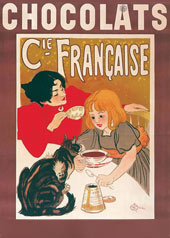 My Mom first put me on a diet when I was about 8 years old. None of my photos show an overweight girl, though I wasn’t skinny either. Rather, I was an average-weight girl with the body type of her Mom, and her Grandma, none of whom were scrawny.
My Mom first put me on a diet when I was about 8 years old. None of my photos show an overweight girl, though I wasn’t skinny either. Rather, I was an average-weight girl with the body type of her Mom, and her Grandma, none of whom were scrawny.
Looking back I realize that my Mom, caught up in the cultural diet craze, just needed a dieting partner… My dad wasn’t having any of it (he loved his sweet treats) and my brother was too young. This left me! My Mom recruited me to diet with her without giving me a choice. When I think of her endless food regimes and “food speeches” — I recognize they were representations of her internal voices: criticizing, blaming, threatening, mocking… These became my own voices for quite a few years, until I started an inner journey of liberation.
What do you remember from your family’s home culture about food and weight? How was food talked about? What did your Mom say about her weight, buying new cloths, or fitting into old ones? If she was anything like my Mom, you must have absorbed quite a lot of negativity… How about eating practices: what are your memories? I remember my Mom weighing herself constantly, counting calories endlessly, and making me do the same.
Determined to not pass this legacy of body loathing and weight-craze to my daughter, I first had to stop and take stock of all my inherited voices and practices. Though I uprooted most of these over the years, I had to take an honest look at the shadows that were still lurking. I invite you to do the same. Take a moment to write down any and all messages you received over the years about your body, your weight, and the “correct” eating habits.
Examine which items on your list are empowering and which are not. Now start noticing which of the less-than-empowering beliefs you still hold? Which are you in the habit of voicing? You may be surprised to find that even though you don’t consciously agree with these beliefs, they slip out unchecked, likely in the presence of your daughter.
How can this change? Start with your list: cross out all messages that are not empowering to you or your daughter, and make a conscious effort to delete them from your conversations. The next step is to re-think the messages you do give out, by both words and behavior. I started modeling a dialogue with my body when my daughter was rather young, and encouraged her to do the same. We developed a practice of asking our tummies if they are full or still hungry. In our home we don’t talk about food as connected to weight, but rather as ‘growing food’ and ‘treats’. When we get dressed I often tell my daughter how beautiful she is, so the message is not about her finished outfit, but rather about her Self.
After all, are we weighing love by calories? We do – if we rebuke ourselves (or our daughters) over weight gain, if we disapprove of ourselves (or her) based on how much we weigh. Our approval and our love need to be given freely, often, and in varying contexts, not related to food or clothing. Our love has no caloric value, and is as weightless as light… Spread it in abundance!
______________________________________
© DeAnna L’am, 2012


